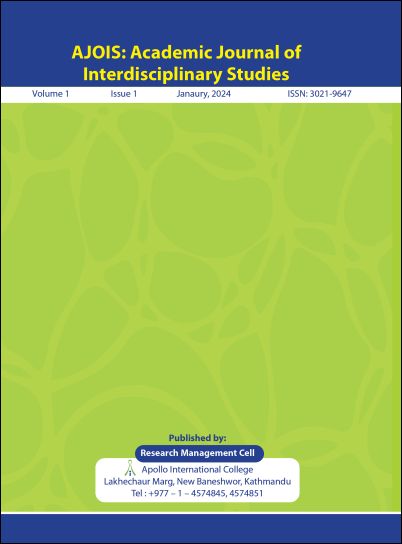COVID-19 and Role of Data Science for Anti-Corruption
DOI:
https://doi.org/10.3126/ajois.v1i1.62937Keywords:
Data science, artificial intelligence, corruption, e-governmentAbstract
Corruptions prevail in various forms. Many governments have adopted e-governance system to control corruption. According to the Transparency International-2021, Corruption Perceptions Index (CPI) becomes higher when there are political instabilities. CPI for Afghanistan is 16 while for Bhutan it is 68 South Asian countries. Corruption negatively impacts both public and private bonds. Many corrupted people thrive well at the cost of infrastructure. E-governance allows citizens to monitor the activities of government directly through computers, smartphones, and the Internet. Maintaining transparency will help the government and public more accountable. In developing countries like Nepal where all aspects of the government have not been digitalized, e-governance may not solve all the problems. The quantity of numerical data is growing in parallel with the digitalisation of our social and economic activities. Big data is considered to be the “new oil" of AI. AI/ML is that it can pore through vast quantities of data in a short time, and can enable users to detect anomalies more quickly and accurately, make predictions and/or find meaning in high volumes of data. The data of CPI is analyzed 2018-2021 of South Asian countries by ANN, AI and ML. Algorithms have been proven to be highly accurate by academic literature. algorithm was able to predict with more than 90 percent accuracy whether there was corruption or not based on the data that was available.




